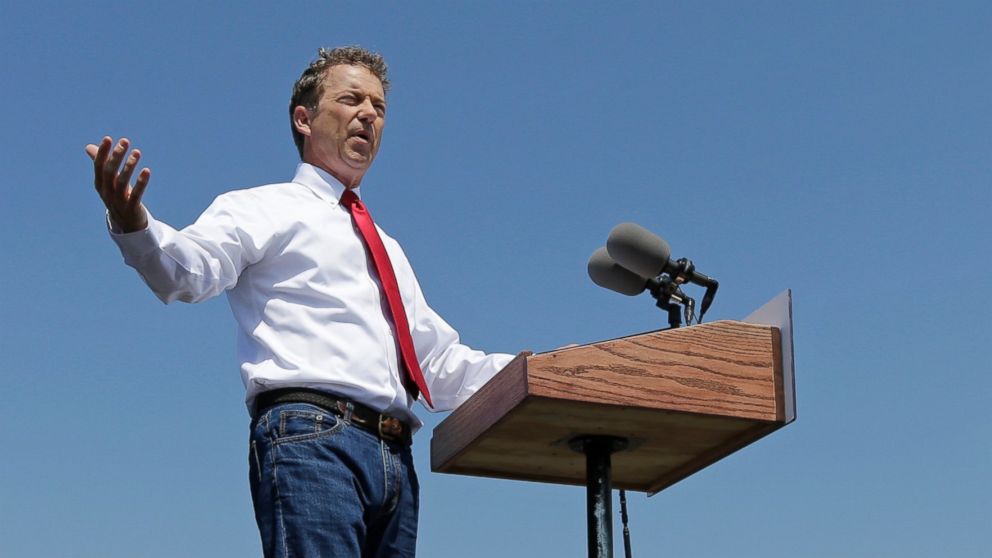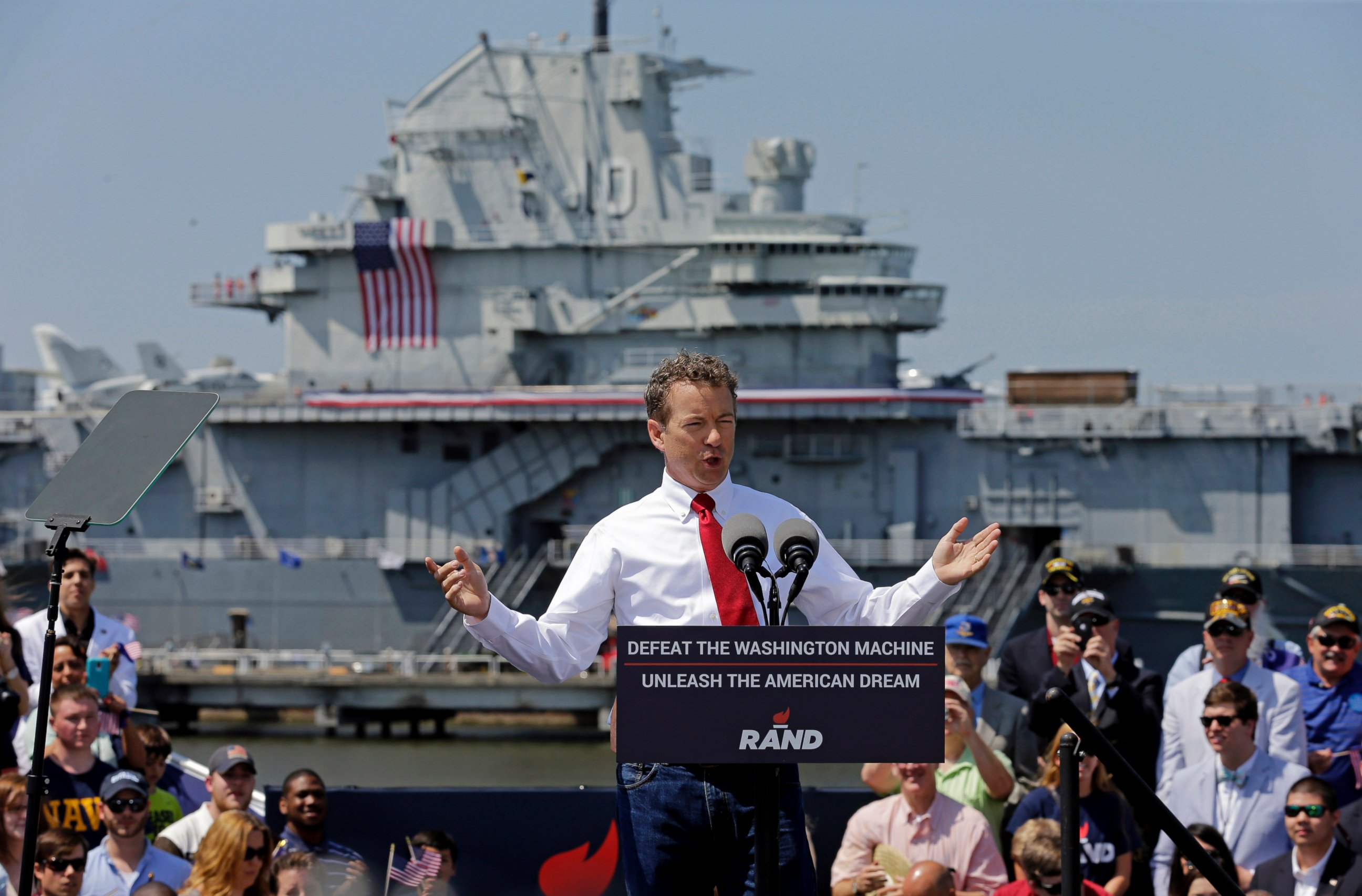Rand Paul Edges Away From His Father's Foreign Policies
In South Carolina, the candidate espouses a middle ground of restraint.

— -- In some respects, an early mission for newly announced presidential candidate Rand Paul has been to escape his father's long shadow.
Twice in interviews since his announcement, the first-term senator from Kentucky has walked back a previous statement -- his 2007 comment that it would be "ridiculous" to consider Iran a threat to U.S. security -- by saying he wasn't a candidate at the time: He was helping someone else.
That "someone else" would be former Rep. Ron Paul of Texas, the former presidential candidate, grassroots libertarian icon and father to Rand. Ron Paul made waves in his 2008 and 2012 White House bids partly by espousing a minimalist vision of American foreign policy, supporting the closure of military bases overseas and challenging notions of "American exceptionalism."
As the younger Paul laid out his own foreign policy vision today, backdropped by the USS Yorktown in Mt. Pleasant, South Carolina, the 52-year-old tea-party-backed senator offered a middle ground between the stark libertarianism promoted by his father and a more-engaged American military supported by other Republicans.
"We need a national defense robust enough to defend against all attack, modern enough to deter all enemies, and nimble enough to defend our vital interests," Paul said. "But we also need a foreign policy that protects American interests, and encourages stability, not chaos."
Already under attack from a conservative group airing a TV ad that criticizes Paul for supporting negotiations with Iran, he has hit back in interviews at the "neocon community" that supported war in Iraq.
"These are the same people who wanted to give arms to [former Libyan leader Moammar] Gadhafi and the next year wanted to topple Gadhafi," he told Fox News' Sean Hannity.
In South Carolina, he turned that message on his presidential competitors.
"I think there is no greater responsibility for any legislator or leader than to determine when we go to war," Paul said. "The consequences are potentially ominous. That responsibility should never be given to any individual who frivolously or cavalierly calls for war."

Paul could face a few rival GOP candidates who support a more aggressive posture, in one form or another. Most notably, Sen. Lindsey Graham, an ally of John McCain, has advocated for an active military and projection of American strength abroad.
In his South Carolina speech, Paul advocated both combating jihadist terrorists -- "The enemy is a barbarous aberration. The enemy is radical Islam. I will not only name the enemy, I will do everything in my power, everything it takes to defend America from these haters of mankind," he said -- and to exercise restraint in military endeavors: "A government inept at home will not somehow succeed at nation-building abroad," he said.
Paul sounded some of the same notes hit by both his father and the anti-war left regarding the later Bush years: suggesting that America should rebuild at home before starting wars and propping up governments abroad.
But the message contrasted with the elder Paul's foreign policy. In his 2008 presidential run, Ron Paul both suggested the 9/11 terrorist attacks were caused by U.S. intervention in Afghanistan and that the U.S. could save money by closing military bases overseas, relying more on diplomacy than a worldwide military presence.
Rand Paul, who called for ending all foreign aid in his early days as a senator, now says ending some aid should be an ultimate goal but not an immediate policy measure.
He also presented his own version of American exceptionalism -- the idea, favored by George W. Bush's neocon supporters, that America is better than other nations and has greater responsibilities as such.
"We're still exceptional," Paul said. "We're still a beacon of the world. We will thrive when we believe in ourselves again."




